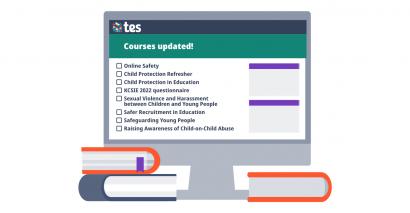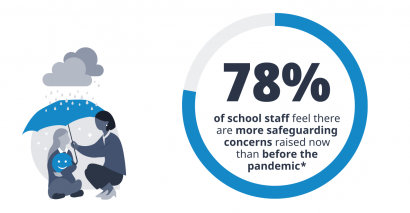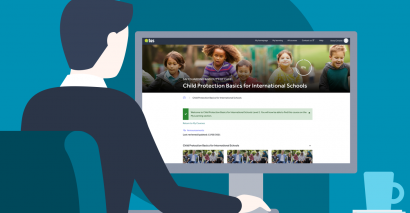The last year has had a huge impact on the lives of young people. While many schools are now entering a period of recovery, other countries are still in the grips of the pandemic, but everywhere safeguarding issues are coming to the fore caused by factors such as increased isolation and a reduction in access to support.
The safeguarding of students is the responsibility of all staff and must be top of the agenda. But what are these new safeguarding challenges and how can staff get up to speed with them? Here are nine key concerns that staff should be aware of during the coming months.
Supporting student wellbeing
For many students, the multiple periods of lockdown will have meant months in isolation and this will have had a huge impact on their wellbeing.
The transition back to ‘normality’ will leave many feeling unsettled, and, in more extreme cases, there will be poor mental health which may require specialist support. Staff should be given training on the most common mental health issues to enable this.
The three most common mental health issues reported in recent years are:
1. Anxiety
Anxiety is a feeling of worry, fear and unease. Everyone will feel anxious or stressed at some point in their life, but it becomes an issue when the response outweighs the situation
Anxiety disorders are the most commonly diagnosed mental health condition and include:
- Phobias
- Panic disorder
- Post-traumatic stress disorder
-
Obsessive compulsive disorder (OCD)
-
Body dysmorphic disorder (BDD)
2. Depression
Depression is more than simply feeling unhappy or fed-up for a few days. At its mildest, sufferers may feel persistently low in spirit, while severe depression can make them feel suicidal and that life is no longer worth living.
Symptoms can be bad enough to interfere with relationships and a person’s social life. It’s important to recognise that depression affects people in different ways and can cause a wide variety of symptoms.
3. Self-harm
Self-harm is when somebody intentionally damages or injures their body. A person may use physical pain as a way of distracting themselves from emotional pain, giving them temporary relief. Many people who self-harm don’t want to end their lives, however, a significant number of people who die by suicide have a history of self-harm, so it’s important that young people who are self-harming receive support.
4. Supporting staff wellbeing
Staff wellbeing is of critical importance to schools, and the impact of work-related stress can be huge and affect everyone in the school community. The stigma that is still sometimes attached to experiencing poor mental health means that people can find it hard to talk about.
Whoever we are and whatever our role, we all need support from the people around us. In a school this includes teachers, senior leaders, support staff, students and parents. Taking a holistic approach means looking after the whole person, respecting and supporting them, and valuing their unique experience and contributions.
5. Inclusion
Inclusion is often defined as ensuring access to learning for those with special educational needs and disabilities (SEND) but true inclusion is far wider than this. Each person is unique in their qualities, personality, dreams, aspirations, skills and struggles. Inclusion is about recognising that no one is any better than anyone else and that all are welcome.
6. Bereavement and loss
Over the last 12 months, many families will have lost loved ones, both due to the pandemic and through other causes, and the grieving process may have been especially difficult. Many won’t have been able to say goodbye or attend funerals in the way they’d have liked. They may also have felt reluctant to reach out for support, not wanting to burden those with problems of their own. This will include children, parents and staff.
Teachers and support staff will be central to supporting young people during this process. From building relationships so children feel comfortable enough to speak out and being emotionally available, to providing information and creating a climate where children feel able to access resources.
7. Domestic abuse
Across the world, incidents of domestic abuse have increased during restrictions enforced during the Covid-19 pandemic. Exposure to domestic abuse and/or violence can have a serious, long lasting emotional and psychological impact on a young person.
8. Safer recruitment
It’s written in statutory guidance for schools and colleges that a culture of safe recruitment is paramount, and schools should adopt a recruitment process that helps deter, reject or identify people that might put students at risk of abuse.
Educational settings now have the added challenge of recruiting with pandemic restrictions in place, but whether schools are conducting face to face or video interviews, it’s important not to cut corners.
9. Online safety
Children and young people have been brought up with the internet and most use technology intuitively. It’s unrealistic to expect all staff to know and keep up to date with all the apps and games they access. However, understanding the basic concepts of social media and gaming and how young people access them will help them to understand the potential risks.
Children and young people should be given strategies to deal with content they don’t want to see or pressure to do things they don’t want to do.





